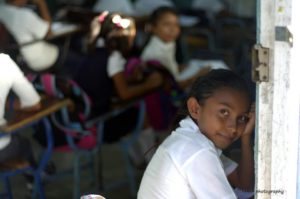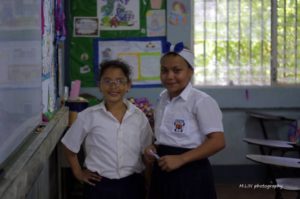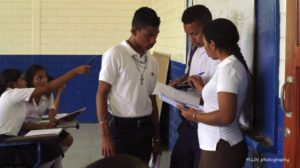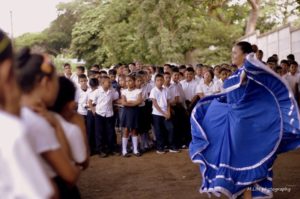Nicaragua Welcomes UK Language Teachers
Giving up three weeks of your own time to teach in temperatures above 30 degrees may not be everyone’s idea of a relaxing summer break, but that is exactly what Longhill High School teacher of Spanish, Emeline Perronno, did this summer.
Ms Perronno travelled to the Central American country of Nicaragua as part of a collaborative education programme between the National Union of Teachers, the Nicaraguan teachers’ union ANDEN and the Nicaraguan Ministry of Education. Nicaragua is about half the size of the UK, with a population of just over 6 million people. Approximately 80% of those people live on less than $2 per day.
Education is seen by the government as playing a vital role in the future progress of the country where teaching resources are scarce. Classes of more than 50 students at a time are taught with little more than a whiteboard and a text book, so teachers must be resourceful without the aid of technology which many of us in the UK take for granted.
Along with other language teachers from across the UK, Ms Perronno spent one week in the capital city, Managua, attending seminars and workshops where ideas and knowledge were shared with the Nicaraguan teachers. After this initial week, the teachers from the UK went to live with Nicaraguan families in various regions of the country, where they were able to attend and teach in local schools to both primary and secondary pupils.
Ms Perronno stayed with a family in the capital, Managua. She told us, “People were extremely warm and welcoming, but living conditions were very basic. There was no air conditioning and the heat was quite stifling at times. They have windows, but they don’t have any glass in them – just a hole with a grille covering it. This means that there is constant noise, either from traffic or from the neighbourhood cockerel! My morning shower came from a single cold water pipe – no hot power showers in Nicaraguan homes!”
Language teachers from Britain offered training in techniques that don’t require technological resources, such as memory games, role play, instructional games, as well as comprehension and vocabulary games. Although students do have mobile phones, they don’t have wi-fi in schools, so internet usage is very limited. Education is free in Nicaragua, as well as equipment for students and a back-pack to put it in. Ideas to make learning more interesting and effective for the students were much appreciated.
We asked Ms Perronno to sum up her experience: “It was challenging at times, with the heat and the class sizes, but I understand now how to communicate better with fewer resources. It has opened my eyes to how privileged we are and how much we take things for granted at home. But I also learned that, as teachers, our aim is the same and that a kid is a kid, no matter where they live!”
Return to previous page



